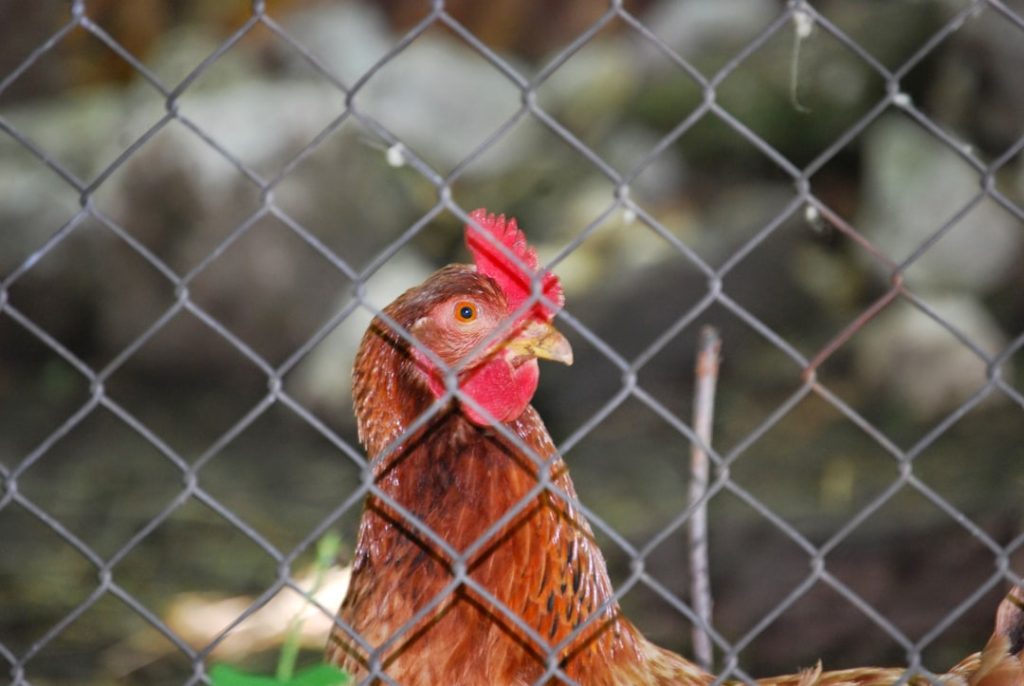Chickens are inherently inquisitive and gregarious animals, displaying a persistent nature when exploring their environment. They exhibit opportunistic feeding behavior, readily consuming any accessible food sources. This characteristic often leads them to enter areas where their presence is undesired, such as gardens or ornamental plant beds.
Comprehending chicken behavior is essential for developing effective strategies to exclude them from specific locations. These birds also demonstrate habitual tendencies, consistently returning to familiar food sources or comfortable roosting spots once discovered. Consequently, occasional attempts to drive them away may prove insufficient in preventing their return.
Successful deterrence requires consistent and persistent application of preventive measures to modify their behavior and discourage repeated visits to particular areas.
Table of Contents
- 1 Creating Physical Barriers
- 2 Using Natural Deterrents
- 3 Implementing Repellent Scents
- 4 Providing Alternative Distractions
- 5 Monitoring and Training
- 6 Seeking Professional Help
- 7 FAQs
- 7.1 What are some natural ways to keep chickens away from flowers?
- 7.2 Are there any commercial products available to keep chickens away from flowers?
- 7.3 Why do chickens like to peck at flowers?
- 7.4 Can I train my chickens to stay away from my flowers?
- 7.5 Are there any plants that chickens particularly dislike?
Key Takeaways
- Chickens are naturally curious and will explore their surroundings, so understanding their behavior is key to deterring them from unwanted areas.
- Physical barriers such as fences and netting can effectively keep chickens out of specific areas and protect gardens or crops.
- Natural deterrents like predator decoys, reflective objects, and noise-making devices can help keep chickens away from certain areas.
- Certain scents like citrus, vinegar, or hot peppers can be used as repellents to discourage chickens from entering specific areas.
- Providing alternative distractions such as designated foraging areas or dust baths can redirect chickens’ attention away from unwanted areas.
- Regular monitoring and consistent training can help reinforce boundaries and discourage chickens from accessing restricted areas.
- If all else fails, seeking professional help from a veterinarian or animal behaviorist can provide additional strategies for deterring chickens from unwanted areas.
Creating Physical Barriers
Physical Barriers
One of the most effective ways to keep chickens out of certain areas is to create physical barriers that prevent them from accessing those spaces. This can be done by installing fences or barriers around gardens or flower beds, or using chicken wire to block off specific areas. It is important to make sure that the barriers are secure and tall enough to prevent the chickens from flying or jumping over them.
Protecting Plants with Netting or Mesh
Another option is to use netting or mesh to cover plants or crops that chickens may be attracted to. This can help protect the plants while still allowing sunlight and water to reach them.
Redirecting Chickens’ Attention
Additionally, creating designated areas for chickens to roam and forage can help redirect their attention away from areas where they are not welcome.
Using Natural Deterrents

There are several natural deterrents that can be used to keep chickens away from certain areas. One common method is to use predator decoys, such as fake owls or hawks, to create the illusion of danger and discourage chickens from entering a specific area. Another natural deterrent is the use of reflective surfaces, such as aluminum foil or reflective tape, which can disorient and scare off chickens.
Placing physical obstacles in their path, such as large rocks or branches, can also make it more difficult for chickens to access certain areas. Additionally, using noise deterrents, such as wind chimes or motion-activated alarms, can startle chickens and make them hesitant to approach certain spaces.
Implementing Repellent Scents
Chickens have a strong sense of smell, and there are several scents that they find unpleasant and will actively avoid. One common repellent scent is citrus, which can be used in the form of citrus peels or essential oils. Sprinkling citrus peels around gardens or flower beds, or using citrus-scented sprays, can help deter chickens from entering those areas.
Other repellent scents that chickens dislike include vinegar, garlic, and hot peppers. These scents can be used in various forms, such as sprays or powders, and applied to the ground or plants to create a barrier that chickens will be reluctant to cross. It is important to reapply these scents regularly, especially after rain or watering, to maintain their effectiveness.
Providing Alternative Distractions
One way to keep chickens out of unwanted areas is to provide them with alternative distractions that will keep them occupied and satisfied. This can be done by creating designated foraging areas with loose soil or sand where chickens can scratch and peck for insects and seeds. Additionally, providing them with toys or hanging treats, such as cabbage or lettuce heads, can keep them entertained and less likely to seek out other areas for food.
Another option is to offer supplemental feed in a designated feeding area away from gardens or flower beds. This can help ensure that the chickens are getting enough food and reduce their motivation to search for additional sources of nutrition in unwanted areas.
Monitoring and Training

Monitoring Behavior and Adjusting Strategies
Regular monitoring of chicken behavior and the effectiveness of deterrent methods is essential in maintaining a successful chicken management plan. By observing their behavior and identifying patterns, it becomes easier to make adjustments and implement new strategies as needed.
Establishing Boundaries and Discouraging Unwanted Behavior
It is also important to consistently reinforce boundaries and discourage unwanted behavior through training. This helps to maintain a well-organized and peaceful chicken coop.
Training Chickens with Verbal Commands and Positive Reinforcement
Training chickens to respond to verbal commands or signals can help establish boundaries and redirect their behavior away from certain areas. Positive reinforcement, such as offering treats when they stay within designated spaces, can also encourage them to follow the desired behavior.
Seeking Professional Help
If all else fails, seeking professional help from a veterinarian or animal behaviorist may be necessary to address persistent chicken behavior issues. These professionals can provide expert advice on managing chicken behavior and offer additional strategies for keeping them out of unwanted areas. In some cases, it may be necessary to consider more advanced deterrent methods, such as electronic fencing or motion-activated sprinkler systems, which can provide a more consistent and reliable means of keeping chickens away from specific spaces.
In conclusion, understanding the behavior of chickens is crucial in finding effective ways to keep them out of unwanted areas. By creating physical barriers, using natural deterrents, implementing repellent scents, providing alternative distractions, monitoring and training, and seeking professional help when needed, it is possible to manage chicken behavior and protect gardens and other sensitive areas from their curiosity and foraging habits. With patience and persistence, it is possible to find a solution that works for both chickens and their human caretakers.
If you’re looking for more tips on keeping chickens, Poultry Wizard has a helpful article on what kind of coop is best for chickens. They also have information on keeping guinea fowl and whether they can live with chickens. Check out their website for more poultry-related advice. https://poultrywizard.com
FAQs
What are some natural ways to keep chickens away from flowers?
Some natural ways to keep chickens away from flowers include using chicken wire or fencing to create a barrier, planting strong-smelling herbs or flowers that chickens dislike, and using motion-activated sprinklers to deter them.
Are there any commercial products available to keep chickens away from flowers?
Yes, there are commercial products such as chicken repellent sprays, chicken deterrent spikes, and ultrasonic animal repellents that can help keep chickens away from flowers.
Why do chickens like to peck at flowers?
Chickens are naturally curious and will peck at anything that catches their attention, including flowers. They may also be attracted to the bugs and insects that are often found around flowers.
Can I train my chickens to stay away from my flowers?
Yes, you can train your chickens to stay away from your flowers by using positive reinforcement, such as giving them treats when they stay away from the flowers, and by consistently redirecting them away from the flower beds.
Are there any plants that chickens particularly dislike?
Yes, there are several plants that chickens dislike, including marigolds, lavender, mint, and rosemary. Planting these around your flower beds can help deter chickens from pecking at your flowers.
Meet Walter, the feathered-friend fanatic of Florida! Nestled in the sunshine state, Walter struts through life with his feathered companions, clucking his way to happiness. With a coop that’s fancier than a five-star hotel, he’s the Don Juan of the chicken world. When he’s not teaching his hens to do the cha-cha, you’ll find him in a heated debate with his prized rooster, Sir Clucks-a-Lot. Walter’s poultry passion is no yolk; he’s the sunny-side-up guy you never knew you needed in your flock of friends!







